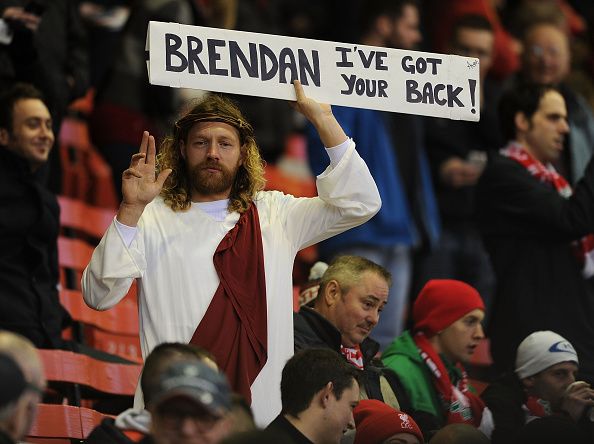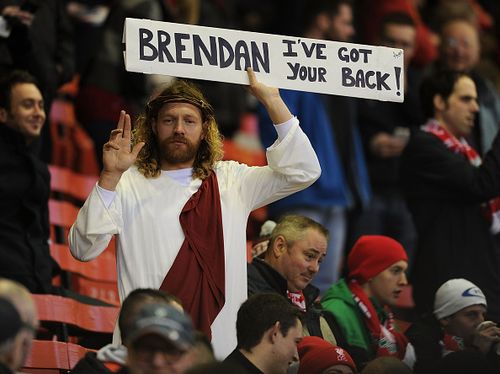
Why Christmas brings no cheer to players and clubs in the Premier League

The snow’s falling down, kids are enjoying their holidays, offices take an extended break and homes swell with festive cheer and celebration as Europe looks forward to Christmas and the impending New Year. Footballers too get a break, to put their feet up a bit and get some rest and relaxation while also getting time to spend with family and friends. After all, when the rest of the world’s celebrating, why shouldn’t they?
However, Diego Costa, Filipe Luis, Alexis Sanchez, Angel di Maria and the rest of the players in England’s top flight – are not sharing the same sentiments as they find themselves embroiled in the yearly rigmarole that is the ‘bonus’ fixture pile-up that the Premier League is associated with usually at this point in the season.
Unlike during their time in Spain in the last few years, the above quartet is not going to be enjoying a winter break this time around. A cluster of games are the presents that the league throws up to its teams, and their players and managers, who must curse their luck when they look at what their pals in the other leagues are up to.
It’s been a long-running debate on whether the Football Association (FA) should cease with this annual fixture congestion in keeping with what Spain, Germany, Italy and the rest of Europe’s top leagues do in order to aid English teams in the long run.
So far though, it hasn’t cut any slack with the powers to be as profit, viewership and cash, continue to ensure that players will be in their team strips four times in a span of 10 days between December 26 and January 5.
The rest of Europe
In contrast, the winter break is on after this weekend’s round of matches in the other leagues. The La Liga will resume on January 3rd, the Serie A on January 5th and the Ligue 1 on January 7th. That’s 14 days off for those teams at the minimum. The Bundesliga is even better, and reopens only on January 30th, resulting in a month of rest and recuperation for the likes of Bayern Munich and Borussia Dortmund.
Of course, Germany has only 18 teams and as a result has 40 matches lesser in its calendar, due to which they can afford a whole month off. But the other three big leagues have the same number of teams as the Premier League and get 14 days off. Ironically, despite that, the La Liga, Bundesliga, Ligue 1 and Premier League all conclude on the weekend of May 23/24; Serie A closes a week later.
So, the situation in England is great for television, great for some sections of fans who do enjoy the added football during the holidays, but how about the players and what effect does it have in the longer run, say for teams in the UEFA Champions League?
English teams in the Champions League knockout rounds
One trend that has been observed on an almost annual basis is that teams from the other leagues seem to almost fare better in the Champions League than those from England. Real Madrid, Barcelona, Bayern Munich, Borussia Dortmund seem to be able to find another gear as the competition moves into March and April.
Last year Manchester City, the eventual champions, were eliminated in the first knockout round by Barcelona, Arsenal likewise by Bayern Munich. Chelsea got to the semi-finals before being beaten by Atletico Madrid.
Last year’s Chelsea are in fact a classic case; they were going well in the Premier League and looking likely for a title run until their resources got stretched with a deep run in Europe. Manchester City benefited from having a deeper squad as well as bowing out early, allowing them to fully concentrate on the league.
This explains how they became champions last year despite being top of the table for a mere 14 days. And Liverpool had no distractions from the get go, a challenge they could not cope with this year, not being able to get past the group stage even.

Looking at how the top English teams (in reference to order of finish that season) have gone in Europe in the last five years, it doesn’t make for good reading.
Of the eventual champions, Manchester United went the furthest in 2010-11 finishing runners-up to Barcelona. No runner-up has gone beyond the quarter-finals and likewise for the third-best team. The top Spanish and German teams are however, constantly making the quarters and the semis in Europe’s premier club competition.
Last year, it was an all-Spanish affair in the final and the year before that, an all-German one. Each of the top three Spanish teams last year made the quarter-finals while two German teams did. Chelsea were England’s only representative.
You might say that those stats merely state the obvious, which is that the Premier League isn’t ‘the best in the world’ as those ‘pundits’ would have you believe and that the players in Spain and Germany are so much better than the ones in England. While that isn’t entirely a faulty line of debate, all players, including the very best ones, need their rest and time to recuperate and when viewed in that context a 14-day period of no competitive action is gold dust.
Chelsea may be amongst the best in Europe this term, but the lack of time off could hurt them when they take on Europe’s big boys.
World Cup exertions
Like those layers of cake that you get around Christmas when you step into feasts, certain footballers this year had to deal with the exertions of playing at the quadrennial showpiece before returning to their clubs.
It wasn’t for no reason that players such as Eden Hazard, Robin van Persie and Pablo Zabaleta took some time to get going this season. Also, players associated with the Brazil team, the World Cup hosts, seem to suffering from a serious dip in form after their underwhelming campaign that ended in a humiliating exit at the hands of eventual winners Germany.
Fernandinho is a prime example of a player whose form has dipped this year over last season, while Oscar and Willian looked to be carrying a hangover for some time as well.
What would really irk the players is that even during such years, there is no exception made by the FA.
Is there any respite?
The fact that the Premier League is an extremely profitable money-spinning offering now probably means that the end to this hectic schedule is nowhere in sight in the near future. When Premier Leagues can charge upto £600 for children to become mascots, you know that its money over anything else.
Also, the fact that as a product it is being lapped up by audiences outside of England who are in fact the main drivers of television revenue probably means that the Christmas festivities for the players will continue to remain on the pitch.

As Louis van Gaal said recently critiquing this, "I am not happy - but I cannot change it - because I don't think it is good for the players that they play within two days of a (previous) match - two matches in two days.”
"In December it shall be like that. We also have family. I have a wife and kids, and grandchildren, and I cannot see them this Christmas. But I want to work in the Premier League, so I have to adapt, and I shall adapt. But I don't think it is good. It is not good for the players, nor for the family."
Perhaps it’s about time ‘the best league in the world’ lent a caring ear to its primary stakeholders in order to further the interests of its clubs in the long run and not just its coffers.